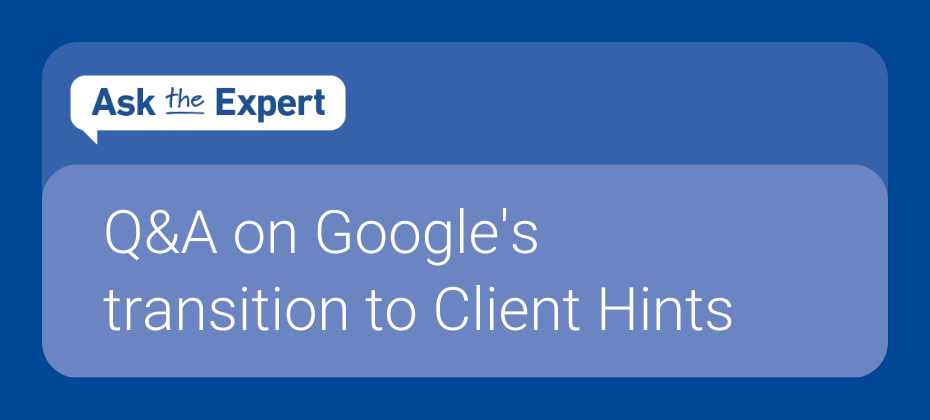
RampUp 2025 brought together some of the smartest minds in AdTech to talk about the future of our industry. I had the opportunity to ask attendees key questions about AI, data collaboration, and the challenges they wish they could solve instantly. Here’s what they had to say.
AI is everywhere in ads—How is it changing things?
AI’s influence on advertising is undeniable, and industry leaders at RampUp 2025 emphasized how it is transforming the way data is used across marketing workflows. The increasing presence of Generative AI like ChatGPT is making it easier to stitch together data from various sources and act on insights, helping marketers execute campaigns with more efficiency.
AI is no longer just about automation; it is now deeply embedded in audience building, personalization, and measurement, enabling marketers to optimize every step of the customer journey.
What’s the one AdTech headache you’d fix forever?
AdTech leaders agreed that some industry challenges have lingered for too long. Many expressed frustrations with the ongoing conversation about unifying cross-screen targeting and measurement. While the technology exists, aligning business priorities remains a roadblock. Others highlighted issues like the complexity of billing and reporting, which still needs to be faster and more reliable. There was also a strong push to educate brand marketers on the continued impact of offline media, such as billboards, and how data-driven strategies can enhance the effectiveness of out-of-home advertising.
Beyond these operational challenges, another recurring theme was the increasing importance of identity as the backbone of effective advertising. While brands are focused on collecting first-party data, the true challenge lies in activating that data at scale. Without a strong identity resolution strategy, first-party data alone is not enough to create meaningful audience connections across multiple platforms and devices.
What’s one AdTech tool or strategy you can’t live without?
When it comes to must-have tools and strategies, data collaboration and clean rooms emerged as essential. These solutions help companies, agencies, and publishers work together seamlessly while maintaining security and efficiency.
Another key strategy discussed was traffic shaping, which allows advertisers to push activation closer to publishers, reducing data leakage and improving overall performance. Both of these approaches are critical for advertisers aiming to scale.
However, as brands continue to seek more flexibility and efficiency, the conversation at RampUp expanded beyond individual tools toward a broader industry transformation. Interoperability has become a top priority, with brands, platforms, and data providers focused on ensuring seamless connectivity across clean rooms, customer data platforms (CDPs), and activation partners. The days of being locked into a single walled garden are over—the future is about data portability.
“RampUp made it clear that the industry is shifting toward curated, interoperable, and always-on identity solutions—and Experian is perfectly positioned to lead this next phase of growth.”
Suzanna Stevens, Sr. Enterprise Partnerships Manager
This shift is also driving changes in how brands manage identity. Rather than relying on one-off data onboarding, companies are increasingly adopting subscription-based identity solutions that provide an always-on, continuously refreshed identity graph. This model ensures that brands have up-to-date customer profiles while reducing inefficiencies associated with batch processing.
What privacy regulations should marketers be watching?
Privacy remains one of the most pressing concerns in AdTech, and industry experts highlighted the need for a better approach to regulation. Consent management was identified as a major priority since it is fluid and directly impacts how marketers engage with consumers. There was also a strong sentiment that the current state-by-state approach to privacy regulation in the U.S. is unsustainable. Instead, the industry would benefit from a national framework that simplifies compliance and ensures more consistent data governance across all states.
Final thoughts from RampUp 2025
RampUp 2025 showcased the rapid shifts happening in AdTech, from AI-driven efficiencies to the growing importance of data collaboration and privacy-first strategies. As the industry works to solve long-standing challenges, such as unification and regulatory fragmentation, innovation continues to drive new opportunities.
Experian remains committed to helping advertisers and marketers navigate these changes by enabling smarter, more connected, and privacy-conscious advertising solutions. We’re excited to see how these themes evolve throughout the year and look forward to collaborating with our partners to shape the future of digital advertising.
Follow us on LinkedIn or sign up for our email newsletter for more insights on the latest industry trends and data-driven marketing strategies.
Contact us
Latest posts

Google is replacing User-Agents with Client Hints across their Chromium browsers. Learn what this change means and how it impacts OpenRTB in our Q&A.

Tapad, a part of Experian, is SOC 2 Type 2 and 27001 compliant. Learn why you should add these certifications to your AdTech information security strategy.

Experian kicked off the AdTech year at CES in Las Vegas. Read our CES AdTech recap to learn our key takeaways from the event for the AdTech industry.